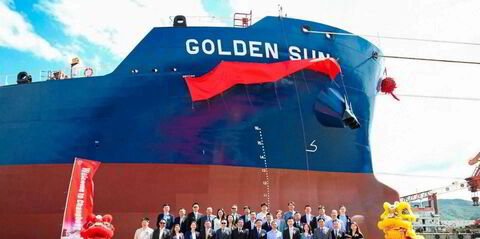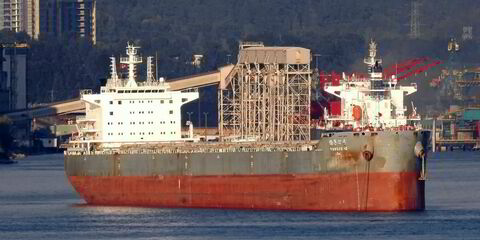Shipping lawyers are being kept busy with enquiries over the terms of charters for vessels plying or avoiding the Red Sea.
But Nick Austin, transport partner at global law firm Reed Smith, said actual legal action might increase when the security situation eases.
“For now, the jury is still out on whether we will see an increase in legal disputes stemming from the crisis,” he said.
Austin noted that shipowners and charterers are mostly working together to find solutions and avoid disputes in what everyone accepts is a challenging situation.
“We have seen this with some oil majors publicly choosing not to order tankers through the Red Sea to avoid putting shipowners in a difficult position, both legally and in terms of the risk of an attack,” he added.
In some instances, more legal stances are being taken.
Charter terms are being scrutinised to determine if a vessel can take a different route without creating a legal liability for the shipowner.
“This needs to be looked at on a vessel-by-vessel basis, but co-operation is key to avoiding disputes, and we are also seeing plenty of that,” Austin advised.
“It may be some time before legal disputes materialise, given that many vessels which have detoured around the Cape of Good Hope are yet to reach their destination.
“And if the situation improves, we may start to see disagreements about whether it is safe enough to pass through the Red Sea without owners being able to refuse. However, it’s still early days in terms of formal disputes being referred to maritime arbitration or court action.”
Cost effect narrowing
Austin pointed out that the rising price of insurance means the cost differential between transiting the Red Sea and sailing around the Cape of Good Hope is narrowing.
But delays to cargo arriving can present legal problems for owners and charterers under cargo documents.
“We are currently fielding a large number of queries from our shipping clients seeking clarification on the legal position under charter arrangements,” he said.
The primary area of concern revolves around war risk clauses.
These vary from contract to contract, and can have markedly different implications, depending on the wording.
Charterers generally seek counsel on whether they can require a ship to transit the Red Sea despite the risk, and owners want to know if they can refuse without legal liability, Austin added.
“While there can be legal consequences of changing a vessel’s route, the prevailing focus for many owners and charterers is directed towards getting cargo to its destination as quickly and cost-effectively as possible,” he said.
“This is a difficult time for all involved — owners and charterers are aware of the complex balance between the legal considerations and the practicalities of ensuring swift and efficient cargo transport.
“Thus far, the industry is working to collaboratively seek solutions amidst universally acknowledged challenging circumstances.”





